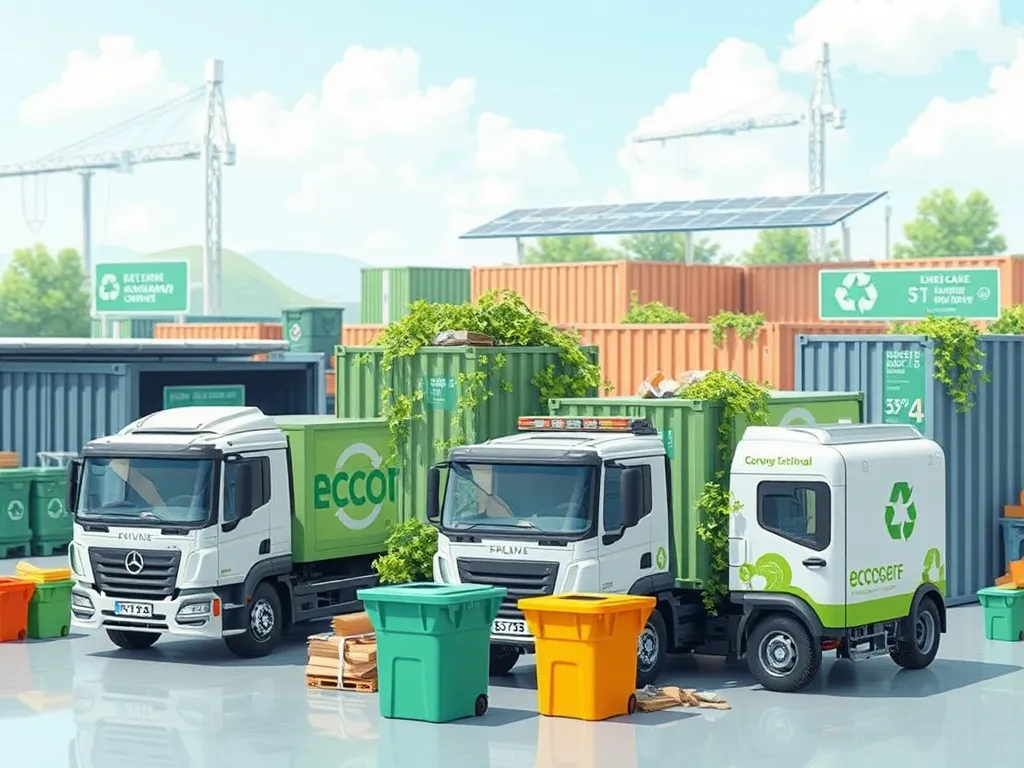Top Trends Shaping the Junk Removal Industry in 2023

Exploring Junk Removal Industry Trends: A Comprehensive Overview
The Junk Removal Industry is currently experiencing significant changes driven by various factors, ranging from environmental concerns to advancements in technology. Junk Removal Industry Trends indicate a growing inclination towards sustainable practices and innovative methods to meet consumer demands. Companies are realigning their services to encompass eco-friendly initiatives and harnessing technology to improve operation efficiency.
Additionally, the Junk Removal Industry Trends shed light on the evolving preferences of consumers who are increasingly aware of their environmental impact. As urbanization accelerates, the demand for clutter management services is surging, compelling businesses to adapt to changing demographic dynamics. The industry is witnessing a robust expansion fueled by increasing awareness about sustainability and convenience associated with professional junk removal services.
With the rise of the gig economy, the Junk Removal Industry is benefiting from a workforce that seeks flexible job opportunities. These trends have made it easier for consumers to access junk removal services through various platforms, including mobile applications, which streamline the booking process and allow for better service accessibility.
Moreover, regulatory changes are making a significant impact on the Junk Removal Industry, with new laws governing waste disposal and environmental compliance reforming operational standards for junk removal companies. Businesses are now prioritizing adherence to these regulations to ensure environmental sustainability and avoid potential penalties.
Furthermore, evolving business models, including franchise opportunities and subscription services, are reshaping the landscape of the Junk Removal Industry. Companies are diversifying their service offerings to attract a broader customer base and enhance revenue streams, showcasing the dynamic nature of this industry.
Exploring sustainable practices, I found that 'Paper Recycling for a Sustainable Future: Global Trends' offers compelling insights into global recycling efforts.
Sustainable Junk Removal Practices
A significant trend within the Junk Removal Industry is the adoption of sustainable junk removal practices. This involves employing eco-friendly disposal methods that are less harmful to the environment. Companies are increasingly investing in technologies that allow them to recycle materials efficiently and reduce their carbon footprint, thereby promoting a cleaner environment.
Recycling trends in junk removal have gained momentum as more companies strive to divert waste from landfills. By recycling everything from electronic waste to household items, junk removal firms are playing a crucial role in conserving natural resources and reducing environmental impacts, aligning their operations with greener initiatives.
Organizations are also implementing strategies to minimize landfill waste, which is critical as local landfills reach capacity. Methods such as repurposing items and donating usable goods not only help in minimizing waste but also contribute to community well-being, reflecting corporate social responsibility.
Additionally, obtaining green certifications has become a way for junk removal companies to distinguish themselves in a competitive market. Certifications from recognized environmental organizations validate a company's commitment to sustainability and attract environmentally-conscious customers, driving growth in the industry.
Technology Integration in Junk Removal
The integration of technology in the Junk Removal Industry is revolutionizing how services are delivered. Mobile apps for booking junk removal services are on the rise, providing customers with a convenient way to schedule pickups, view pricing, and track their service in real-time. This digital transformation makes accessing junk removal services much easier for consumers.
Innovations in junk tracking systems are changing how companies manage operations. Using GPS and other tracking technologies, businesses can optimize their routes, ensuring quicker pickup times and reduced fuel consumption, thereby benefiting the environment and increasing profitability.
The application of AI for efficient route planning is another significant trend within the industry. AI algorithms analyze data to determine the best routes for service vehicles, which not only enhances operational efficiency but also contributes to cost savings in the long run.
Moreover, virtual consultations for junk removal services are becoming more common. Companies are leveraging video technology to assess customer needs before the actual removal, providing estimates and advice without the need for an in-person visit, further enhancing customer experience and service accessibility.
Market Growth and Consumer Behavior
The demand for junk removal services is on the rise, driven by growing consumer awareness of the benefits of professional decluttering. As people desire clean living spaces, the Junk Removal Industry is thriving, providing not only solutions for homeowners but also for businesses looking to maintain a clutter-free environment.
Changing demographics of junk removal clients are reshaping market dynamics. Younger generations, particularly millennials and Gen Z, are prioritizing minimalism and sustainability, driving the need for efficient junk removal services that align with their values, further expanding the customer base.
Urbanization significantly impacts junk removal trends as cities grow and space becomes limited. With more residents living in smaller homes or apartments, the need for junk removal services increases as people often require assistance managing their belongings and maintaining tidy spaces.
Seasonality in junk removal services also plays a role in market trends. Certain times of the year, such as spring cleaning season and post-holiday periods, see spikes in demand, leading companies to devise strategies to manage the influx of requests effectively and optimize their resources during peak periods.
Regulatory Changes Affecting Junk Removal
New laws on waste disposal are impacting the Junk Removal Industry significantly. As governments and local authorities impose stricter regulations, junk removal companies must adapt their practices to ensure compliance and avoid potential fines, thereby reshaping operational standards.
The impact of local regulations on junk removal businesses can be profound, often determining what materials can be collected and how they must be disposed of. Companies need to stay informed and agile to modify their practices proactively to comply with these evolving requirements.
Licensing requirements for junk removal companies have also become more stringent in some regions. As the industry becomes more regulated, companies are required to obtain specific licenses to operate legally, increasing operational barriers for entry into the market.
Additionally, complying with environmental laws has become a priority for junk removal businesses. Companies are investing in compliant methods of waste disposal and adopting practices that align with environmental regulations to mitigate penalties and enhance their sustainability credentials.
Evolving Business Models in Junk Removal
Franchise opportunities in the junk removal sector are increasingly attractive for entrepreneurs seeking to enter a booming market. Established brands are expanding their reach, providing franchisees with the necessary support and frameworks to succeed, fostering growth within the industry.
Subscription services for regular decluttering are emerging as a desirable option for clients needing consistent assistance. By offering monthly or quarterly pickups, junk removal companies can create steady revenue streams while helping clients maintain tidy, organized spaces year-round.
Diverse pricing strategies are also evolving in this sector, as companies look to accommodate various budget levels and service needs. Offering flexible pricing based on volume, type of junk, and service urgency can increase customer satisfaction and loyalty while optimizing profitability.
Lastly, partnerships with local businesses for junk processing are becoming more prevalent. By collaborating with recycling centers and donation organizations, junk removal companies can promote sustainability and foster community goodwill, all while ensuring responsible disposal and recycling of items.
